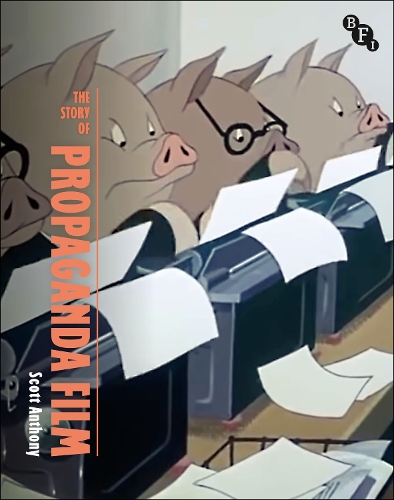
The Story of Propaganda Film
(Hardback)
Available Formats
Publishing Details
The Story of Propaganda Film
By (Author) Scott Anthony
Bloomsbury Publishing PLC
BFI Publishing
31st October 2024
United Kingdom
Classifications
Tertiary Education
Non Fiction
Media studies
Political control and freedoms
791.4365810941
Physical Properties
Hardback
192
Width 168mm, Height 220mm, Spine 16mm
580g
Description
The story of the British propaganda film is the story of mass democracy in 20th-century Britain, as the nation has shifted from global superpower to post-colonial state via globalisation, entanglements with Europe and experiments with various types of liberal economics. Diving into the BFI's unique National Archive and examining the output of organisations and institutions such as the British Council, the GPO Film Unit, the Ministry of Information and the Central Office of Information, this book traces the history of British propaganda film, from documentaries about British sporting prowess to the influencing possibilities of emerging applications and technologies such as Face2Face and AI. Propaganda in the early 20th century was an expression of power and patronage: an entreaty to believe in, join or fight for a cause. The propaganda film now exists as much to confuse, misdirect and occlude the ability to understand or interrogate power. Though it is commonly understood as a kind of state-sponsored psychological warfare, this book examines propaganda in its widest sense, from campaign films that aimed to manage mass democracy to videos micro-targeted to niche audiences and delivered through digital platforms such as YouTube.
Author Bio
Scott Anthony is a journalist and historian based at Nanyang Technological University in Singapore. His books include Night Mail (BFI, 2007), Public Relations and the Making of Modern Britain (2012) and the co-edited volume The Projection of Britain: A History of the GPO Film Unit (BFI, 2012). He has worked as a journalist for Future Publishing, The Guardian and The Times and has worked as a freelancer for a wide range of media organisations in the UK, North America and Asia, including the BBC, ITV, The New Statesman, The Tablet, The Jewish Chronicle and the LRB Blog.
